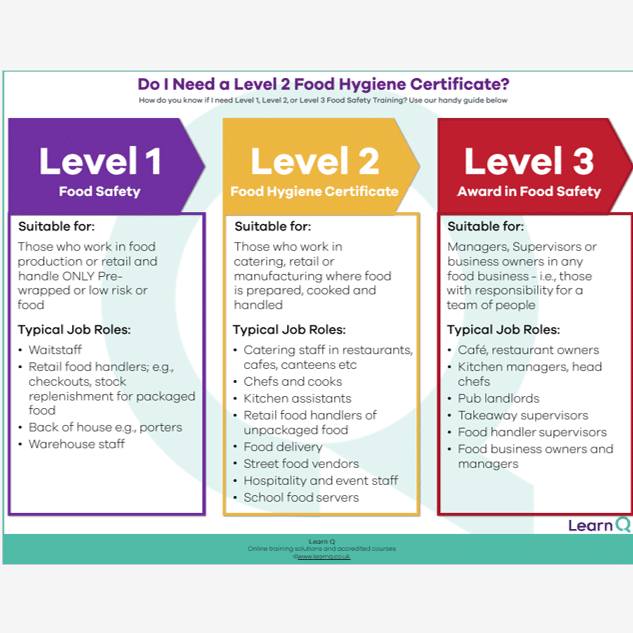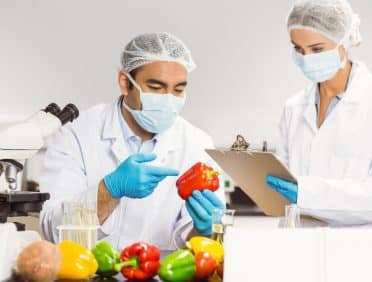When it comes to handling food, ensuring its safety and hygiene is paramount. Whether you’re working in food production, retail, catering, or any other food-related industry, proper training is essential to prevent foodborne illnesses and maintain a high standard of food safety. But how do you know which level of food safety training is right for you? Let’s delve into the world of food hygiene certifications and help you understand whether you need a Level 1, Level 2, or Level 3 Food Safety Training.
Level 1 Food Safety Certificate: Who Should Take It?
The Level 1 Food Safety Certificate is designed for individuals who work in food production or retail and handle only pre-wrapped, low-risk, or packaged food items. This level of training is suitable for roles such as:
- Waitstaff: Those serving pre-packaged or low-risk food items to customers.
- Retail food handlers: This includes individuals working at checkouts or involved in stock replenishment for packaged food products.
- Back of house personnel: Porters and warehouse staff dealing with pre-wrapped or low-risk food.
If your job responsibilities fall within these categories and involve handling only pre-wrapped or low-risk food items, a Level 1 Food Safety Certificate is likely sufficient to equip you with the necessary knowledge to maintain food safety.
Level 2 Food Hygiene Certificate: Who Is It Meant For?
The Level 2 Food Hygiene Certificate is a step up and is appropriate for those who work in catering, retail, or food manufacturing where food is prepared, cooked, and handled. This level of training covers a broader range of roles, including:
- Catering staff in restaurants, cafes, canteens, and similar establishments.
- Chefs and cooks involved in food preparation and cooking.
- Kitchen assistants who handle food ingredients and assist in food preparation.
- Retail food handlers dealing with unpackaged food items.
- Food delivery personnel responsible for transporting food safely.
- Street food vendors serving food to the public.
- Hospitality and event staff who handle and serve food at gatherings.
- School food servers ensure students’ meals are safe to consume.
If your role involves any of these responsibilities, a Level 2 Food Hygiene Certificate is likely the right choice to ensure you have a solid foundation in food safety practices.
Level 3 Award in Food Safety: For Managers and Supervisors
The Level 3 Award in Food Safety is geared towards individuals with managerial or supervisory roles in any food-related business. If you’re responsible for a team of people or oversee the operations in a food establishment, this is the certification for you. This level of training is ideal for:
- Café and restaurant owners who manage food operations.
- Kitchen managers and head chefs responsible for food preparation.
- Pub landlords ensure food safety in their establishments.
- Takeaway supervisors overseeing food handling and preparation.
- Supervisors of food handlers, ensuring their team follows proper food safety protocols.
- Food business owners and managers with overall responsibility for food safety practices.
For those holding leadership positions in the food industry, the Level 3 Award in Food Safety is crucial in order to manage and maintain high food safety standards.
Click here to download your FREE Do I need a Level 2 Food Hygiene Certificate? poster
Choosing the right level of food safety training is essential for maintaining the health and well-being of both consumers and those working in the food industry. Whether you’re just starting out as waitstaff, working as a chef in a bustling kitchen, or managing your own food business, there’s a suitable level of certification to ensure you’re well-equipped to handle food safely. Remember, investing in proper food safety training not only benefits your career but also contributes to the overall health and safety of your community.
Take the appropriate qualification for you and your colleagues with Learn Q today!













